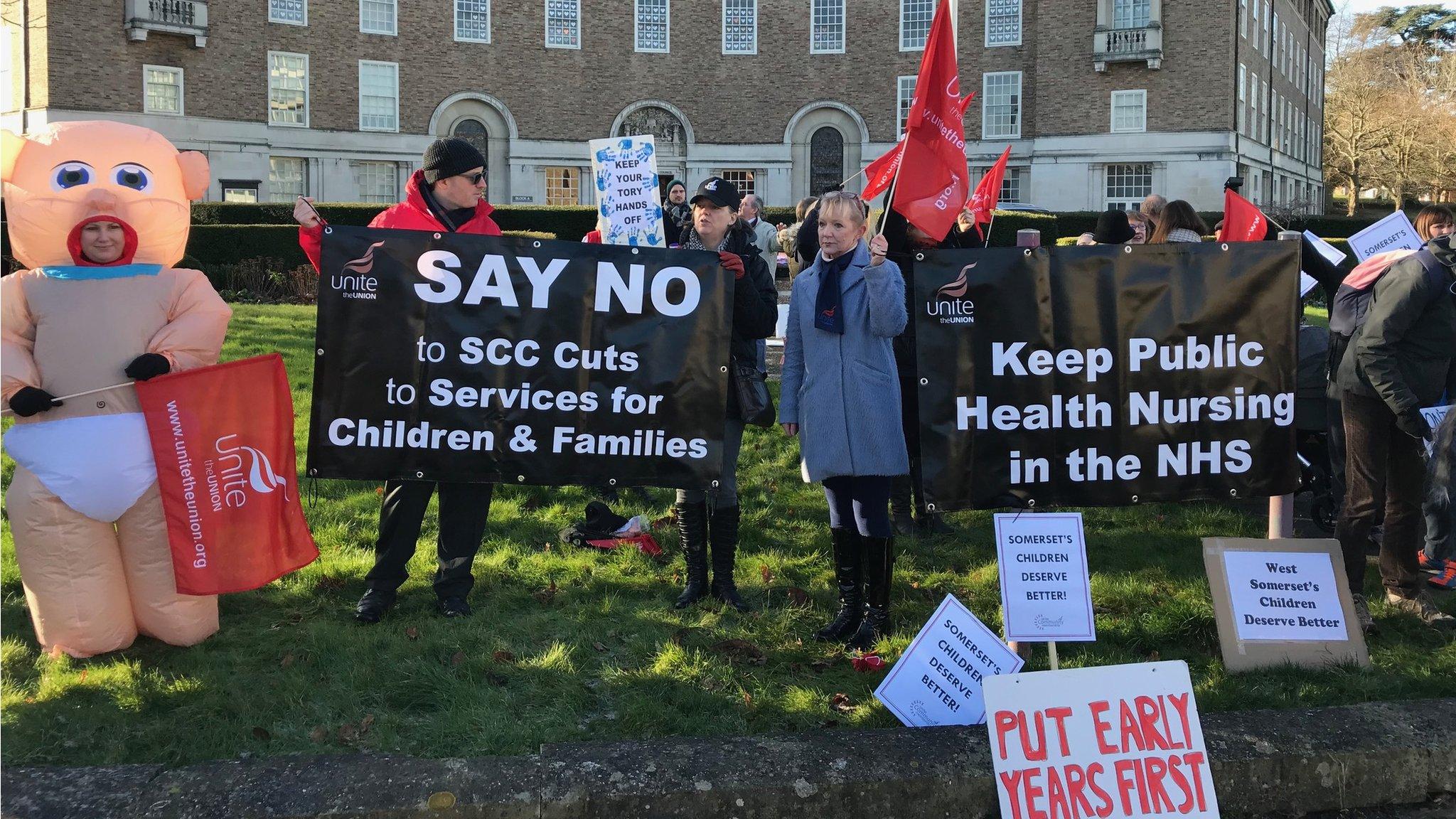Sure Start centres 'big benefit' but face cuts
- Published
- comments
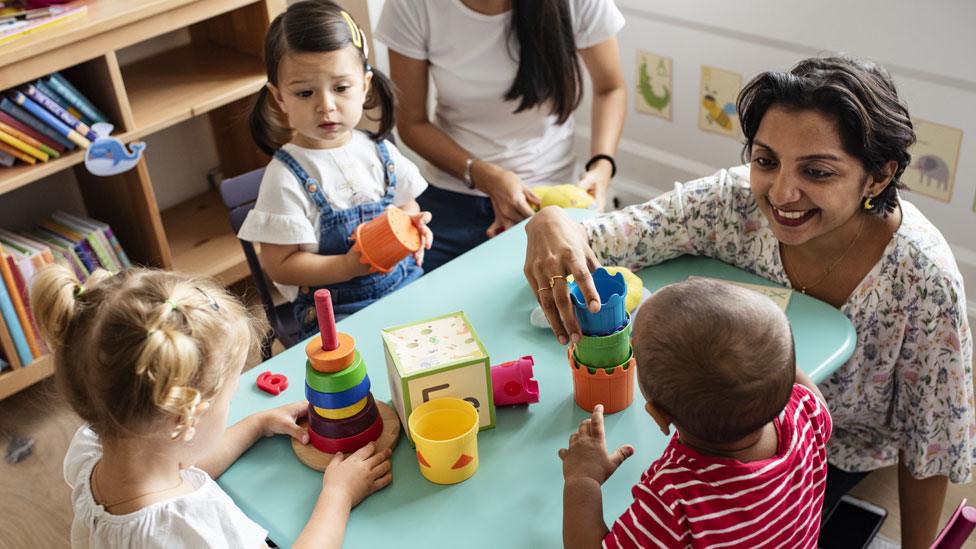
Sure Start centres, aimed at improving early years health and education in England, brought "big benefits for children's health", researchers say.
The Institute for Fiscal Studies (IFS) found a positive impact from the scheme, launched 20 years ago as a flagship of Tony Blair's Labour Party.
But the think tank warns that funding has been cut and 500 sites have closed.
The Local Government Association says councils have "done all they can within ever tightening budgets".
The report examines the effect of Sure Start, an early intervention policy designed to support the wellbeing of children before they started school.
Health education
The centres provide parents with information and advice about health, education, childcare and employment, particularly in disadvantaged areas.
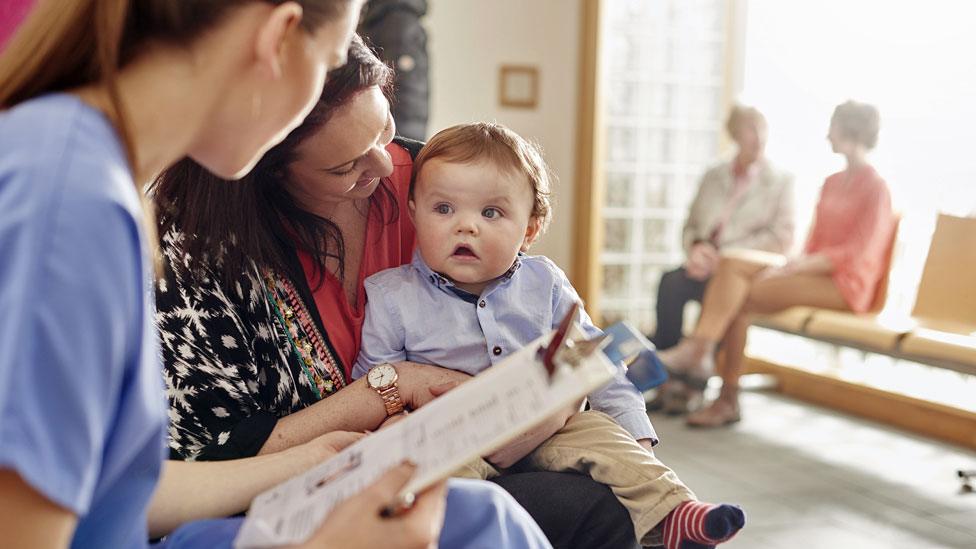
Sure Start centres are credited with lowering the rates of children needing hospital treatment
Researchers describe it as a story of a "fast rollout followed by deep spending cuts" - but they say the centres have brought measurable improvements.
The provision of Sure Start centres "significantly reduced" the incidence of children going to hospital up to the age of 11, says the study, which looked at the impact on health.
The study found that for every one Sure Start centre per thousand children there were 5,000 fewer hospital admissions for 11-year-olds each year.
Christine Farquharson, a research economist at the IFS, said the drop in hospitalisation rates was the result of parenting advice, health education, lessons about keeping children safe and improving children's behaviour.
For younger children, the reductions in hospitalisation were more likely to be for "infection-related" problems, says the study, while for older children it was more likely to be for accidents and injuries.
Disadvantaged areas
These "benefits are strongest for children living in disadvantaged areas", says the study, while there was relatively little difference in wealthier areas.
However, levels of childhood obesity were not significantly affected by Sure Start, says the study.
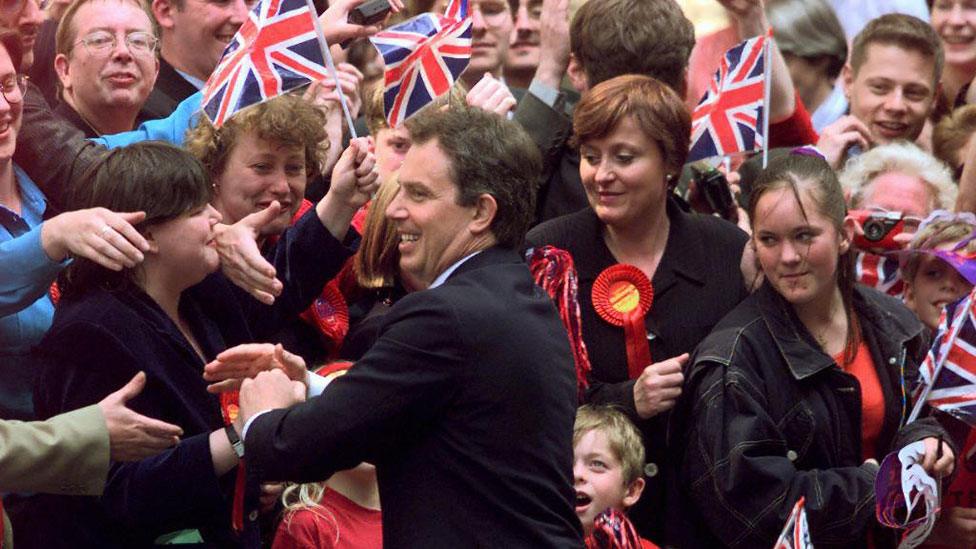
Sure Start was a flagship policy after Tony Blair's election win in 1997
The IFS researchers, funded by the Nuffield Foundation charity, are confident the reductions in hospital admissions can be attributed to access to Sure Start centres, when other social and geographical factors are taken into account.
But the think tank warns Sure Start centres have had declining support.
Spending peaked in 2010 at £1.8bn (in current value) but was cut by two-thirds to £600m by 2017-18 - and about 500 centres closed between 2011 and 2017.
Most of these closures were in better-off areas but 170 were in the poorest 30% of neighbourhoods, says the think tank study.
'Limited resources'
There are also big differences in levels of local provision, says the study, with decisions about children's centres having been devolved to local authorities - which in turn have faced funding pressures.
Researcher Ms Farquharson said there needed to be more attention paid to what worked - particularly in the run-up to the government's spending review.
"It's crucial that both central government and local authorities use the best evidence," she said, adding that "limited resources are best focused on the poorest areas".
Antoinette Bramble, of the Local Government Association, said such centres were an "incredibly important service" for parents of young children.
But she said many councils could not afford them - and more would be lost.
"It is inevitable that without new investment from government in children's services, councils will face the difficult but unavoidable decision of having to cut or close early help services such as children's centres," she said.
Tracy Brabin, Labour's shadow early years minister, said it was "heart breaking that such a vital service, which helps disadvantaged children the most, has had two-thirds of its funding cut".
A government spokesman said: "Children's centres can play an important role in supporting families.
"Local councils decide how to organise and provide services for families in their areas to meet local needs - whether this is through children's centre buildings or delivering services in different ways, and we continuously reflect on what works best."
- Published10 February 2019
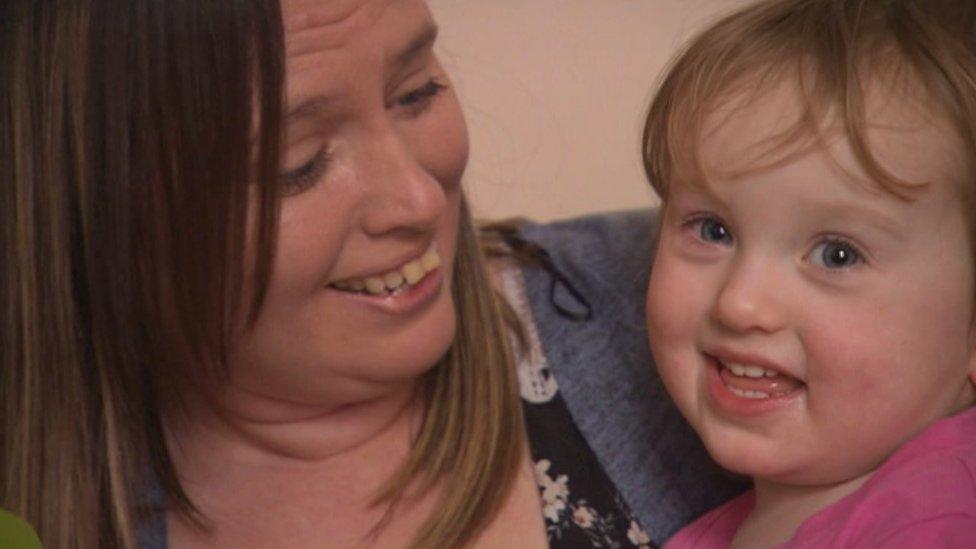
- Published5 April 2018

- Published12 February 2018
